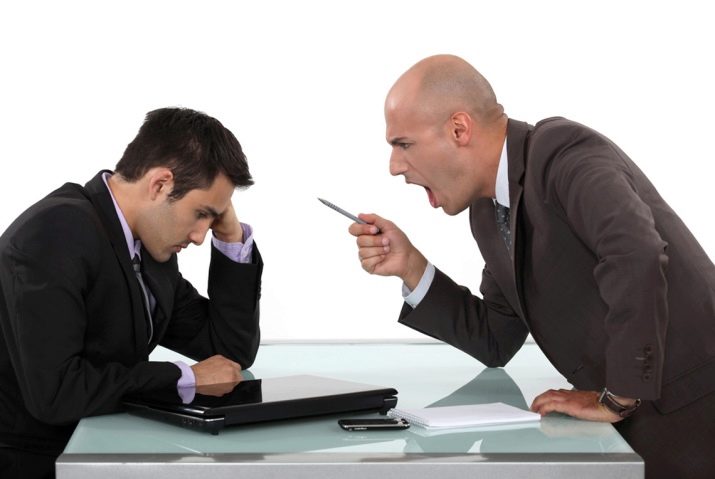What is work ethic? What it is? What are the foundations of a model code of ethics and rules of etiquette for employees and a manager? How to behave with customers? What is fraught with incorrect behavior in the workforce? All this will be discussed in our article.

What does the concept include?
Service ethics is a complex of foundations, rules of human behavior in the field of his professional, industrial or official activity.
Under service etiquette is understood the norm of moral behavior of a person in a team. Knowledge of etiquette is expressed in the acquisition of professional qualities and continuous improvement of existing skills. A key condition for the coordinated work of any organization, company or institution is a culture of behavior and relationships between management and employees, as well as between customers and partners.
In the working environment, the employee is constantly in relationship with everyone. Observe the rules and requirements of business etiquette are required both managers and subordinates.

According to the rules of etiquette at social events, conversations should be conducted without discussing personal life, it is better to discuss only current business problems and issues.
Compliance with business etiquette in accordance with all the rules is designed to create a healthy emotional working environment, improve mood, which will help increase labor productivity and satisfy personal self-affirmation.
The fundamental principles of etiquette in performance management have significant differences in companies, organizations, institutions of different industries. There are general rules that are binding on company employees and government officials. Several of the basic principles can be distinguished: punctuality, the employee’s appearance matching the established dress code of the company, the ability to maintain confidentiality, and leave personal problems outside the walls of the office.


Manager Etiquette
Being a leader implies a certain status in connection with the assigned position and position. The authority of a leader is influenced by his high culture of communication. Standards of professional ethics, which are mandatory for compliance with the head, are expressed in the following:
- communication with subordinates, colleagues, partners and clients should be based on the principle of democracy;
- attentiveness to the behavior of subordinates and availability in resolving conflicts;
- the ability to create a friendly and trusting atmosphere in the work team;
- polite and correct attitude;
- responsibility in business matters;
- ability to keep the word given to them;
- possess objectivity in relation to all subordinates;


- to express integrity and exactingness in business;
- create a favorable moral and psychological climate in a collective environment;
- make claims to subordinates not in front of everyone, but in private conversation;
- employees must be periodically rewarded for success;
- in the event of an incorrect assessment of the situation and punishment of an innocent subordinate, it is imperative to admit their mistakes;
- be fair when sentencing employees;
- Do not lead empty quarrels.

It will be right if the leader, through his actions and manner of behavior, strengthens the subordinate's sense of dignity. The praise of the subordinate in the form of verbal and monetary rewards should not be forgotten. However, praise must be a measure, otherwise the subordinate will develop intolerance for criticism.
In the behavior of the leader, balance is always necessary. So, if the subordinate did not comply with the order of the management, it must be indicated that responsibility or punishment follows for non-execution of orders.

Employee Etiquette Rules
Each company has its own “ranking card”. The document can be either standard or supplemented by industry-specific principles. For example, some employees are contacted only by name, in relation to others, subordination is clearly visible in the appeal by name and patronymic.
Beginners should carefully look at the manners and forms of communication in interpersonal relationships in the team and take them as an example.

The basic norms of etiquette are expressed in the following:
- possession of a common culture;
- decency in relationships with colleagues;
- respect for the honor and dignity of colleagues;
- lack of hypocrisy and lies;
- politeness;
- the ability to leave your problems and personal troubles outside the walls of the office;
- goodwill, honesty, respect, tact, delicacy;
- ability to condole and express compassion.

Etiquette rules with customers and partners
The etiquette of official relationships with customers and partners in enterprises and government agencies shows that you must maintain the correct behavioral qualities and observe the following rules:
- politeness;
- punctuality (meetings must not be late);
- timeliness (all incoming letters and calls from customers must be answered on time, without delay);
- responsibility for the tasks taken and the timing of their implementation;
- neat and decent appearance.


Compliance with generally accepted standards of ethics in the workflow will contribute to long-term and lasting relationships with customers and business partners, as well as the growth of the company's prestige and profits.
Office etiquette in working with foreign clients or foreign partners involves knowledge of the customs, traditions of the representative country, mentality and moral behavior. Ideally, relationships are built on respect and honesty.

Fundamentals of a Model Code of Ethics
The code of ethics and official conduct should not contradict the constitutional foundations, but should take into account the principles of professional ethics and the rules of conduct for the employee in the work collective.
Fundamental norms express the attitude to professional duty and ensure high-quality performance of official duties, contribute to career growth and high key performance indicators.
The rules of ethics form a collective relationship. The document spells out the basics of a conflict of interest in a company, responsibility for exceeding official powers, maintaining the confidentiality of personal data and company secrets, observing the principles of conducting reasonable competition, norms of personal integrity, and more.
Codes of ethics regulate the performance of representatives of different professions: both individually practicing and employed.


There are standard codes that combine a list of disciplinary rules and norms of official conduct. The quantitative component of such bases is small, the vast majority of them is summarized in a generalized form. The following is a detailed discussion of the specifics, and the following issues are highlighted:
- the code should be regulatory and focused;
- the code regulates the protection of the interests of the employee and the client;
- the code must be precisely worded;
- the code, like any regulation, must be both supervised and supervisory.

Features of Unwanted Behavior
In the labor process, inappropriate actions are always strictly suppressed. Unwanted behavior implies the following:
- offensive remarks and comments;
- bad reviews about colleagues, customers;
- swearing and profanity;
- rudeness in words and actions, abuse of authority, obsession;
- tactless gestures against colleagues and clients;
- violation of the regulated dress code.

See more about the right leadership strategy in the team in the next video.










